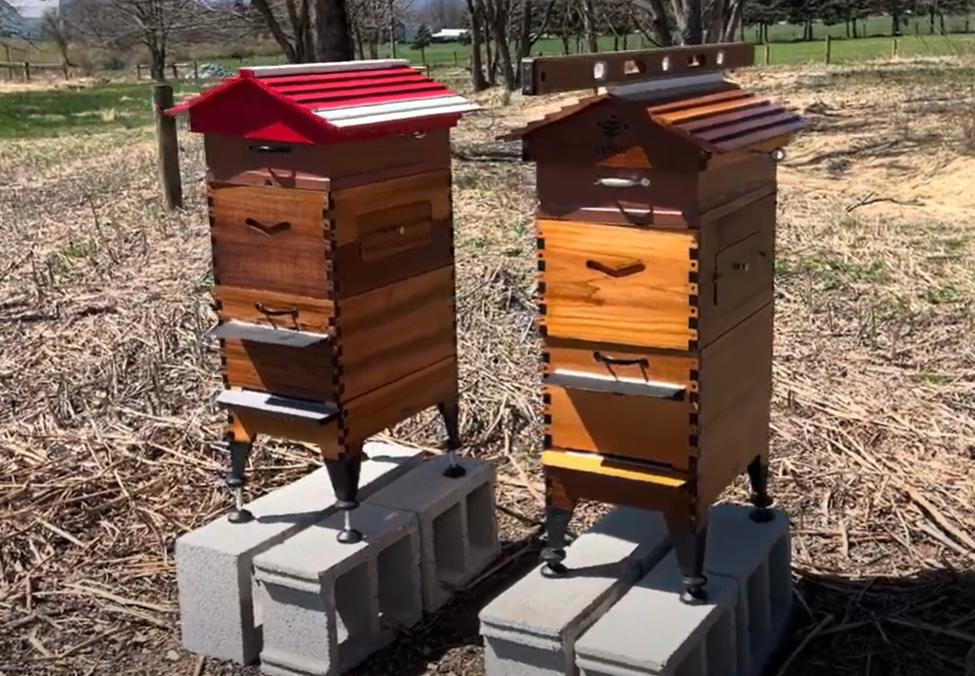Buzzing Benefactors: The Vital Role of Bees in Regenerative Agriculture
In regenerative agriculture, few performers are as crucial as the humble bee. These buzzing benefactors, along with other pollinators, play a pivotal role in the health and vitality of ecosystems worldwide. From flowering fields to fruit-laden orchards, their tireless efforts contribute to reproducing countless plant species, which makes them indispensable partners in the journey toward regenerative farming practices.
Pollinators: Nature’s Unsung Heroes
At the heart of regenerative agriculture lies the concept of sustainability and harmony with nature. Pollinators, particularly bees, embody this by facilitating the pollination process essential for plant reproduction.
As they flit from flower to flower in search of nectar and pollen, bees inadvertently transfer pollen grains, enabling fertilization and the production of seeds and fruits. This symbiotic relationship ensures plant species’ survival and underpins the entire food web, supporting diverse ecosystems and agricultural landscapes.
Biodiversity and Resilience
In regenerative agriculture, biodiversity is not merely a buzzword—it’s a fundamental principle for fostering resilience and ecological balance. Bees and other pollinators contribute to this biodiversity by interacting with a wide array of flowering plants, each with its unique characteristics and nutritional value.
By promoting diverse plantings and natural habitats, farmers create havens for pollinators, enhancing the stability and resilience of agricultural ecosystems against pests, diseases, and environmental stressors.
Boosting Crop Yields and Quality
The economic benefits of pollinators extend beyond their ecological contributions, with studies consistently highlighting their positive impact on crop yields and quality. Fruit orchards, vegetable fields, and nut groves all rely on pollinators to ensure robust harvests and desirable produce characteristics.
In regenerative farming systems, where emphasis is placed on soil health and ecosystem services, the presence of abundant pollinators can significantly enhance agricultural productivity and profitability.
Challenges and Conservation Efforts
Despite their invaluable contributions, bees and other pollinators face numerous challenges in the modern agricultural landscape. Habitat loss, pesticide exposure, climate change, and disease outbreaks threaten their populations, jeopardizing the stability of ecosystems and food systems worldwide.
Recognizing the urgency of these threats, farmers, researchers, and conservationists are collaborating more and more to implement bee-friendly practices, such as establishing wildflower strips, reducing pesticide use, and creating nesting sites.
Bees at Eight Oaks
In April, Eight Oaks Farm Distillery embarked on an exciting endeavor to enhance its commitment to sustainability and support local pollinator populations by installing new beehives from Flow Hive.
By partnering with Flow Hive, a renowned provider of innovative hive solutions, Eight Oaks aims to boost pollination on the farm and contribute to broader efforts to protect and restore pollinator habitats. Through this collaboration, Eight Oaks reaffirms its mission to produce high-quality spirits while fostering a thriving and sustainable agricultural ecosystem for future generations.

The Way Forward: Embracing Pollinator-Friendly Practices
As stewards of the land, farmers play a pivotal role in safeguarding pollinator populations and promoting their well-being. By integrating pollinator-friendly practices into their agricultural operations, such as planting diverse flowering crops, providing nesting habitats, and minimizing pesticide usage, farmers can create thriving ecosystems that support both biodiversity and productivity.
Furthermore, raising awareness about the importance of pollinators among consumers and policymakers is essential for fostering collective action and driving positive change toward a more sustainable and regenerative future for agriculture.
Cheers!